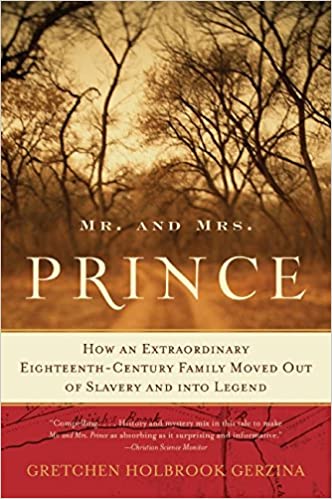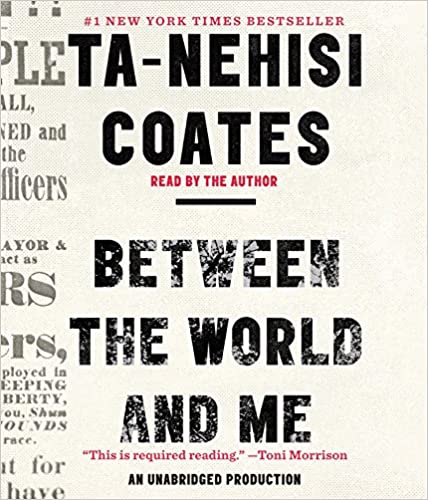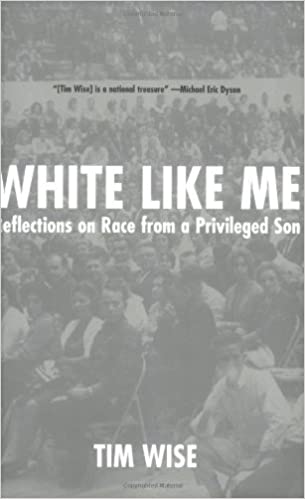How is it that until this year, I didn’t know about Juneteenth, the anniversary of the day the news of the Emancipation Proclamation made it to Texas, then a remote outpost?
How is it that until this year, I didn’t know that Juneteenth has been a state holiday in Vermont since 2008?
How is it that I grew up celebrating not just Christopher Columbus’s “discovery” of America, but also the man himself, a man who enslaved the residents who were already living in the so-called New World?
How is it, I can be highly educated and yet so ignorant of so much?
The Answer: Implicit bias.
What I Learned in School
My elementary education about the founding of the United States, in particular, was all about the Europeans who came and conquered, bringing freedom and democracy to all. And I believed it, even though it’s not true.
The original framing of the constitution included the Three-Fifths Compromise, which allowed slave-owners to count three out of every five slaves as people, in order to give southern states more electoral power. The original framing of the constitution didn’t acknowledge any members of the indigenous nations whose land this was. And the original framers of the constitution ignored the half of all humanity that’s female.
When I was in elementary school, this information was presented as normal; in second grade I even thought I was related to the Pilgrims, who I’d learned came to America seeking religious freedom. It’s taking me a lifetime to correct this bias, and I’m just getting started.
Self-Education By Reading
I’ve embarked on a long-overdue course of self-education by reading, which is what I’m professionally trained to do. Here’s an annotated list of some of the books I’ve read, and a much longer list of books on my pile of Books To Be Read.
One of the most important books I’ve read about race in America so far is Isabel Wilkerson’s The Warmth of Other Suns, a Pulitzer prize-winning account of African Americans leaving the south for New York, Chicago and Los Angeles in the twentieth century, seeking safety and opportunity within their own country. Known as The Great Migration, it is the second story of displacement for so many African Americans whose ancestors were stolen and shipped to North America as slaves, beginning in the earliest days of British colonization.
A History of Racism in Vermont
I always took solace from my northern roots, but being from the north does not give me a pass on implicit bias. First of all, slavery existed in the north. And while Vermont can take some pride in being the first state to prohibit slavery in its constitution, and for running a line of the Underground Railroad to Canada, Vermont is also a place where racial prejudice has existed a long time. It’s well documented in Mr. and Mrs. Prince, a history of an eighteenth-century family that moved out of slavery in Massachusetts and into freedom and bigotry in Vermont.

The Princes had been slaves in Deerfield, Massachusetts. Abijah Prince’s owner freed him; he purchased Lucy Terry’s freedom. They married and moved to a farm in Guilford. The Princes worked hard and were successful until their white neighbors set their barn on fire. Lucy Prince took the neighbors to court.
Ugly outbreaks of overt racism have waxed and waned in Vermont. The Ku Klux Klan was active here in the early 1920’s. In 2016, a Black Lives Matter flag was stolen from the flagpole in front of the Davis Center at the University of Vermont. You can learn about this overt racist act in Raise a Flag to Revolution: Black Lives Matter at the University of Vermont, an excellent film made by UVM students and available on YouTube.
This past weekend, some person or persons vandalized the new Black Lives Matter mural in front of the State House in Montpelier. A multi-racial group of over two-hundred community members painted the mural; the next day, the mural was vandalized. Footage from a security camera shows a middle-aged white man defacing it.
But there are other kinds of racism here as well: a 2017 study showed both that Black and Hispanic drivers in Vermont were more likely than White drivers to be stopped and searched by state and local police and that they were half as likely to be found with contraband than White drivers. It is exactly this: being suspicious of someone on account of their skin color – by police, by shopkeepers, by passersby, by you and me.
What I’m Reading

I’m now reading Between the World and Me, by Ta-Nehisi Coates, written as a letter to the author’s teenage son about being Black in the United States. The book was published in 2015; this is an account of how things are now for parents of sons with dark skin. As if parenting weren’t hard enough.

I’m also reading White Like Me, by Tim Wise, a memoir about race written by a thirty-six year old privileged white man. I’ve just cracked the cover and already I’ve learned that not having to think about race is a sign of my own racism.
I’m reading two books at a time because I have a lot of learning to do and because I’ve borrowed them from the library. I’m reading the books as they become available, as there are waiting lists for most of these books, indicating that I’m not alone in this effort of self-education.
Books to Read, and a Film
The titles I’m waiting for include (in no particular order): White Fragility by Robin DiAngelo, White Rage by Carol Anderson, Women Race and Class by Angela Davis, Me and White Supremacy by Layla F. Saad, How to Be an Antiracist by Ibram X. Kendi and The New Jim Crow, by Michelle Alexander.
Also available free on YouTube during the month of June is Just Mercy, the story of Bryan Stevenson and the founding of the Equal Justice Initiative, dedicated to those trapped in a legal system that is neither color-blind nor fair.
Juneteenth
Finally, Friday is Juneteenth, the day in 1865, when word finally made it to Texas that the Emancipation Proclamation had been signed into law. The law had been signed a year and a half earlier, on January 1, 1863. And it’s not the great liberating document I learned it was: It only applied to slaves in Confederate states and was dependent upon the Union winning a military victory over the South. A hundred and fifty-seven years later, it’s time not just to make Juneteenth a national holiday, but to liberate all of us from our racist ways.
Racism is like Covid-19: #We’re All In This Together
In the meantime, here are links to lists of books, films and articles others have so graciously compiled. Please let me know what books, articles, videos, films and podcasts you find most helpful.
Further Reading
http://lostriverracialjustice.org/reading-list/ from Lost River Racial Justice, an all-white affiliate of Showing Up for Racial Justice, dedicated to small town and rural multiracial organizing, based in Brattleboro, VT.
33 Books Featuring Black Heroes and Characters That Every Kid Should read from Theeverymom.com
Talking to Kids About Racism, Early and Often. Books can help start the conversation, from the New York Times.
Why Is Vermont So Overwhelmingly White (podcast VPR’s Brave Little State).


Deborah,
This is a great list. As a high school history teacher, I also had to (re) educate myself. I didn’t major in history in college, so as I learned things by accident that I had never heard of, or didn’t understand, I dove into it and incorporated it into my classes as quickly and thoroughly as possible. Alas, there was never time to do these issues justice, at least in my mind.
Deborah, I’m genuinely impressed with the desire to of you to learn more about how the history of racism and how people of color were written out of American history.
Here is a Youtube video link that describes how the daughters of the confederacy worked diligently over generations with elementary, middle, high schools,l and universities to diminish the black experience.
The word “systemic” describes the generational causes of racism in America.
https://youtu.be/dOkFXPblLpU
My current study and research include novels written by First Nations People. One, in particular, The Inconvenient Indian: A Curious Account of Native People in North America.
Link: https://www.penguinrandomhouse.ca/books/93028/the-inconvenient-indian-by-thomas-king/9780385664226
Hi Deborah,
Your article is totally interesting to me. I have been interested in race/slavery for many years. When I went to college in N.J. many years ago I witnessed a situation I did not understand. I traveled by bus and noticed all the black folks going to the back. As a 18 year old country girl from Ct. this bothered me–a lot. From then on it has been reading, reading all that I could get my hands on to study all the issues these folks had to endure. Of course, I had studied history in school in Ct. but was never prepared for what I would witness away from my little country town. I have copied down all the books you listed. Thank you so much for sharing this today.
Hi Deborah
I just read your wonderful article about Racism. I am also self educating and have a lot to learn. I only heard about Juneteenth when I went to a short program at a local museum in Philadelphia.
In school, I also was told how wonderful the explorers were, never told what they did to the Native Americans who lived here. Remember all those Westerns on TV, always saw the Native Americans ie Indians starting trouble but it was often the other way around. Just this week I read
The American Heritage Book of Indians, published in 1961 with an introduction by John F. Kennedy. I hope and pray our grandchildren get a much better and honest education.
Hope to read at least some of the books on your list. Thank you.
Hi Deb,
Here is a good writer currently living in Lincoln Neb. with books about this topic:
JENNINE CAPÓ CRUCET
https://twitter.com/crucet
Books: MY TIME AMONG THE WHITES, MAKE YOUR HOME AMONG STRANGERS, HOW TO LEAVE HIALEAH.
jcapocrucet.com